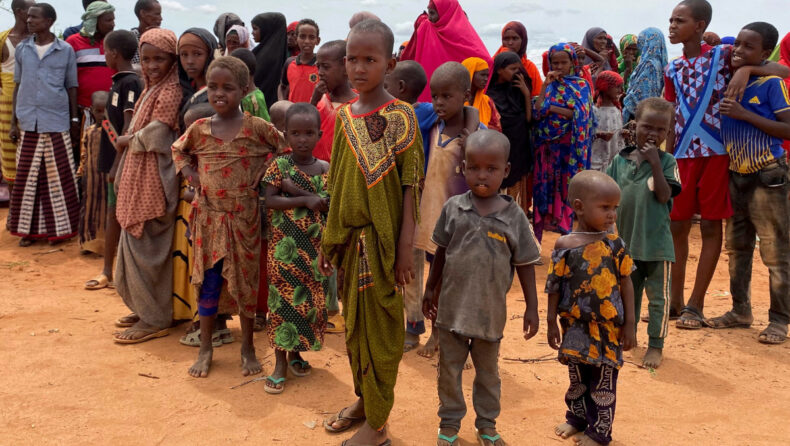In a startling development, the European Union has temporarily halted funding for the World Food Programme (WFP) in Somalia. This decision comes in the wake of a damning UN investigation that uncovered extensive theft and misappropriation of aid intended to alleviate famine in the country.
Table of Contents
European Union Takes Action
Two senior EU officials revealed on Monday that the European Commission has suspended its funding for the WFP’s operations in Somalia. Last year, the European Commission contributed over $7 million in aid, a small fraction of the more than $1 billion received by the WFP from various donors worldwide.

While it remains unclear if EU member states will follow suit and suspend their aid, Balazs Ujvari, a European Commission spokesperson, emphasized their zero-tolerance approach to fraud, corruption, or misconduct. The decision was made in response to the UN investigation’s findings, which implicated landowners, local authorities, security forces, and even humanitarian workers in the theft of aid intended for vulnerable Somalis.
United Nations Investigation Exposes Widespread Theft
The UN investigation, marked “strictly confidential” and commissioned by Secretary-General Antonio Guterres, was made public by Devex, a media outlet focused on international development. The report highlighted that internally displaced persons (IDPs) were coerced into paying up to half of their cash assistance to individuals in positions of power, often under the threat of eviction, arrest, or removal from beneficiary lists.
This suspension of aid follows a similar move by the WFP and the U.S. Agency for International Development (USAID) three months ago when they suspended food aid to Ethiopia due to rampant diversion of donations.
The Impact on Somalia
The European Commission contributes 10 million euros to both Somalia and Ethiopia through the WFP, with the suspension affecting a portion of this aid. Meanwhile, the United States is the largest humanitarian donor to Somalia, contributing more than half of the $2.2 billion in funding for the country’s humanitarian response last year.
Jessica Jennings, a spokesperson for USAID, assured that the United States is actively working to understand the extent of aid diversion and take measures to protect beneficiaries. However, unlike the situation in Ethiopia, USAID has no plans to halt food assistance in Somalia.
In response to these revelations, the Somali Disaster Management Office, responsible for coordinating the government’s humanitarian response, affirmed the government’s commitment to investigating the UN report’s findings. However, they noted that the current aid delivery systems operate independently of government channels.

A History of Aid Challenges
Aid distribution in Somalia has faced significant challenges for decades, exacerbated by weak government institutions, rampant insecurity due to an Islamist insurgency, and the marginalization of minority clans. After aid theft scandals during the 2011 famine, humanitarian agencies shifted their assistance towards cash-based transfers, believed to be less vulnerable to corruption. The UN report underscores that even cash-based systems are susceptible to exploitation.
While famine was averted last year, approximately 43,000 people, including half of them children under five, succumbed to the effects of a severe drought in Somalia. The UN report, which refrained from quantifying the extent of aid diversion, emphasizes that the problem is widespread and systematic, posing a substantial threat to ongoing humanitarian efforts.
As the world grapples with limited funding for humanitarian aid amid global challenges, only 36% of the $2.6 billion needed for Somalia’s humanitarian response this year has been funded, highlighting the precarious situation for vulnerable populations in the country.
Read More: China’s Defence Minister Li Shangfu Disappears, Raising Questions













